Bright Leaf

Brief Synopsis
Cast & Crew
Michael Curtiz
Gary Cooper
Lauren Bacall
Patricia Neal
Jack Carson
Donald Crisp
Film Details
Technical Specs

Synopsis
In 1894, Brant Royle returns to the tobacco growing community of Kingsmont, North Carolina, years after cigar magnate James Singleton drove his family off their tobacco farm. As he walks through town, Brant is almost run down by a carriage driven by Singleton's daughter Margaret. To the horror of her aunt, Tabitha Jackson, Margaret speaks with Brant, although not very kindly, and Brant makes it clear that he is romantically interested in her. Meanwhile, Singleton meets with John Barton, the inventor of a machine that rolls and packages cigarettes. Singleton, who prefers cigars to cigarettes, refuses to buy the machine. When Singleton hears that Brant has returned, he forbids Margaret to speak with him, and when Margaret insists that she will do as she pleases, he determines to run Brant out of town for the second time. Tabitha then accuses Margaret of deliberately stirring up her father, and Margaret does not deny it. In town, Singleton and Brant quarrel over Margaret. Barton overhears the argument and takes advantage of Brant's hostility to Singleton to try to sell him the invention. Although interested, Brant is impoverished and approaches Sonia Kovac, an old friend who used to work for his father and now owns a women's rooming house. Sonia, who is in love with Brant, is disappointed that he has only come for money, but eventually agrees to become his partner. Then, when Christopher Malley, a patent medicine salesman, takes refuge at Sonia's house after angry customers attack him, Brant offers him a job selling cigarettes. Several years later, using the motto "The Royle Cigarette Company--Fit for a King," the partners have become very successful. Brant's affluence enables him to drive many of the local cigar manufacturers out of business, leaving only Singleton as his major competitor. After Margaret learns that Brant is planning to celebrate Sonia's birthday, she invites him to visit her instead. Brant does, and Singleton kicks him out of the house. When Brant announces that he intends to marry Margaret, she replies that this is impossible as long as he is friends with Sonia. Later, Brant bluntly reminds Sonia that he never made any promises to her and that he plans to marry Margaret because she is a "lady." Chris then tries to tell Sonia that he loves her, but she takes it as a joke. Eventually, Brant takes over Singleton's loans and offers to exchange them for Margaret. Although Singleton angrily rebuffs him, Margaret informs her father that she will marry Brant and get their money back from him. Disgusted by his daughter's plot, Singleton challenges Brant to a duel and, when Brant refuses, kills himself. Brant, who over the years has become increasingly greedy and selfish, then drives Barton out of the company. Even loyal Chris is troubled by Brant's behavior. Margaret and Brant marry and move into the redecorated Singleton house, which they call Bright Leaf, but their marriage is unhappy. When the Attorney General brings a monopoly suit against Royle, Inc., Brant is too involved with his marital problems to take care of it. After Chris reveals that Margaret has sold all her shares in the company and is leaking information, Brant confronts her, and Margaret admits everything, stating that now that she has avenged her father's death, she wants a divorce. In his fury, Brant falls and accidentally sets the house on fire. Writing a finish to this part of his life, Brant lets the house burn. He apologizes to Sonia, admitting that the Singletons are now out of his system. Sonia sadly responds that his apology is years too late and watches him ride out of Kingsmont, as he came into it ten years earlier, with nothing.

Director

Michael Curtiz
Cast

Gary Cooper

Lauren Bacall

Patricia Neal

Jack Carson
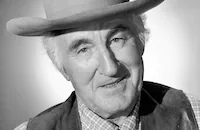
Donald Crisp
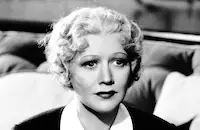
Gladys George
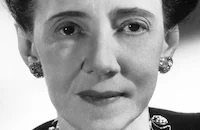
Elizabeth Patterson

Jeff Corey

Taylor Holmes
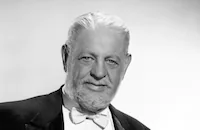
Thurston Hall

James Griffith
Marietta Canty

William Walker
Charles Meredith
Leslie Kimmel
John Pickard
Elzie Emanuel
James Adamson
Ira Buck Woods
Paul Newland
J. Lewis Johnson
Jessie Lee Hunt
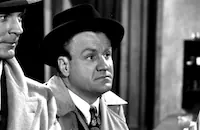
Lyle Latell
Eddie Parks
Celia Lovsky
Shelby Bacon
Pat Flaherty
Pete Kellett
Hubert Kerns
Rene Devoux
Eileen Coghlan
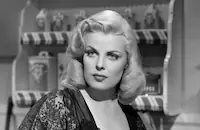
Cleo Moore

Nita Talbot
Pat Goldin
Chalky Williams
Chick Chandler
Marshall Bradford

John Alvin
John Morgan
Benny Long
Ed Peil Sr.
Charles Conrad
Sam Flint
Boyd Davis
Kermit Whitfield
Crew
Marjorie Best
Henry Blanke
Ben Bone
Sid Cutner
Stanley Fleischer
Karl Freund
David C. Gardner
Stanley Jones
Ranald Macdougall
Owen Marks
Leah Rhodes
Sherry Shourds
Leo Shuken
Norman Stuart
Perc Westmore
Victor Young

Videos
Movie Clip


Film Details
Technical Specs

Articles
Bright Leaf
Based on the novel by Foster Fitz-Simons, Bright Leaf (1950) marked the second pairing of Gary Cooper and Patricia Neal, whose magnetic sexual chemistry on-screen in The Fountainhead (1949) evolved into a real love affair off camera though Cooper was married. Hoping to capture more of the couple's spark and sizzle on screen, Warner Bros. cast Cooper and Neal in this period melodrama with the same kind of love-hate relationship that had reached operatic heights in the previous King Vidor film version of Ayn Rand's novel. However, this time Michael Curtiz was secured as director and Lauren Bacall was cast as the woman who wins Royle's love and gratitude in the end. Initially Neal wanted to play the more sympathetic role of Sonia as she felt she was being typecast too often as "a bitch." She even pleaded with studio executives to let her play Sonia to no avail and then asked Cooper to help persuade them in her favor. According to Neal, Cooper refused, "Not because he thought I should fight my own battles and not because he was unwilling to raise suspicion about our relationship...he simply did not want to get involved in any conflict. Conflict was something Gary Cooper was a master at avoiding." In the end, Bacall won the coveted part of Sonia, even though Ruth Roman had originally been considered for the role.
Neither actress enjoyed working on Bright Leaf and it wasn't one of Cooper's favorite filmmaking experiences either. For one thing, the actor, who was accustomed to playing heroes, had difficulty playing his role of a ruthless, vengeful businessman with conviction. He was more comfortable in the film's occasional action scenes a public brawl, riding his horse or escaping a flaming mansion then in delivering dialogue like "A man with guts and a workable cigarette machine could make this valley belch fire."
Working with director Michael Curtiz, however, was the major challenge facing the two actresses. Neal had clashed repeatedly with the Hungarian émigré since shooting began and tempers flared when it came to shooting a crucial pre-wedding argument between Brant and Margaret. According to Neal biographer Stephen Michael Shearer, the actress demanded, "How can I fight with a husband before I marry him?"...She asked that they film the wedding scene first, saying that she would fuss with her husband that afternoon. Curtiz refused. "You will do the fussing and fighting, and then you must make love for the wedding," he said. "But I tell you one thing: you must not eat any lunch. Because you cannot make love on a full stomach. You will be gay, lovely and charming if you pass up the tray at noontime. Ditch diggers can eat lunch, yes; actors no. I have no use for any of them who eat." Patricia played her scenes hungry."
Bacall's experience with Curtiz on Bright Leaf was equally unpleasant and recalled the filming in her autobiography: "'Coop' was one of the most attractive men I've ever seen, with his cornflower-blue eyes. He was a pro, but not always on time. One morning he was late and Mike [Curtiz] was livid so much so that he screamed at me. He wouldn't dare let go at Coop, knowing he'd just walk off the set. Now, I have never handled myself well in screaming situations. I become inarticulate, usually cry. On this occasion with his ranting and raving 'Goddamn actor-bum! - I took myself tearfully to my dressing room. Finally Coop arrived, not all that late, and Mike was all over him: "Gary, dahling, how are you how do you feel?" Coop knew that Mike was full of it, but played the game." Regarding this period in her career, Bacall would later say, "Jack Warner kept giving me terrible scripts and I kept going on suspension." Bright Leaf would turn out to be the last movie Bacall made under her contract to Warner Bros.
Most of the filming of Bright Leaf took place on the studio's Calabasas ranch where the entire town of Kingsmont was built by the movie's crew; they also acquired an impressive number of period props and set decorations that lent the film a much needed authenticity such as the vintage 1900 cigarette machine seen in Bright Leaf. In addition, Victor Young's emotional, sweeping score and Karl Freund's lush, atmospheric cinematography were among the movie's most notable attributes.
Yet, despite all the star power and lavish production values on display, Bright Leaf was not a hit with critics. Bosley Crowther of The New York Times called it a "curiously flavorless film," and singled out Bacall for the most severe criticism, calling her performance "torpid and dull....It is hard to perceive how this lady could fascinate anyone." Variety was equally unimpressed, noting, "Star names provide some box office help, but there's not enough good, solid interest in the footage to sustain it." And Wanda Hale of the New York Daily News, issued the warning, "Many more pictures like his new starring vehicle Bright Leaf, and his [Cooper] high standing is likely to drop as suddenly as an elevator with a busted cable."
Surprisingly enough, Bright Leaf was a box office success and made a tidy profit of half a million dollars which was considerable at the time. In more recent years, renewed interest in the movie was generated when independent filmmaker Ross McElwee (Sherman's March, 1986) made a direct connection to it in his film Bright Leaves (2003); he thought that the movie might be a fictionalized version of what happened to his great-grandfather, John Harvey McElwee, a tobacco baron in North Carolina, whose empire was crushed by his rival James Buchanan Duke. While there are many similar parallels between the plot of Bright Leaf and the McElwee-Duke rivalry, McElwee was never able to prove that Foster Fitz-Simons, the original author, had based his novel on his great-grandfather and James Buchanan Duke.
Producer: Henry Blanke
Director: Michael Curtiz
Screenplay: Ranald MacDougall; Foster Fitz-Simons (novel)
Cinematography: Karl Freund
Art Direction: Stanley Fleischer
Music: Victor Young
Film Editing: Owen Marks
Cast: Gary Cooper (Brant Royle), Lauren Bacall (Sonia Kovac), Patricia Neal (Margaret Jane Singleton), Jack Carson/Dr. Monaco (Chris Malley), Donald Crisp (Major Singleton), Gladys George (Rose), Elizabeth Patterson (Tabitha Singleton), Jeff Corey (John Barton), Taylor Holmes (Lawyer Calhoun), Thurston Hall (Phillips).
BW-111m.
by Jeff Stafford
SOURCES:
Gary Cooper: American Hero by Jeffrey Meyers
Patricia Neal: An Unquiet Life by Stephen Michael Shearer
By Myself and Then Some by Lauren Bacall
Lauren Bacall: A Bio-Bibliography by Brenda Scott Royce
The Casablanca Man: The Films of Michael Curtiz by James C. Robinson
www.afi.com

Bright Leaf
Quotes
Say, don't I know you from some place?- Blacksmith
I've never been there.- Brant Royle
We all felt pretty bad about your...trouble.- Lawyer Calhoun
Yeah, I'll bet you cried hour after hour.- Brant Royle
I'm afraid I don't believe in cigarettes, much less a machine for makin' them. It turns my stomach, sir, every time I have occasion to witness someone pokin' one of those vile concoctions into their face. I deal in cigars, sir. Nothing less.- Major Singleton
I've learned a great deal from you, Brant. If I weren't an honest man, I might be able to use it.- John Barton













